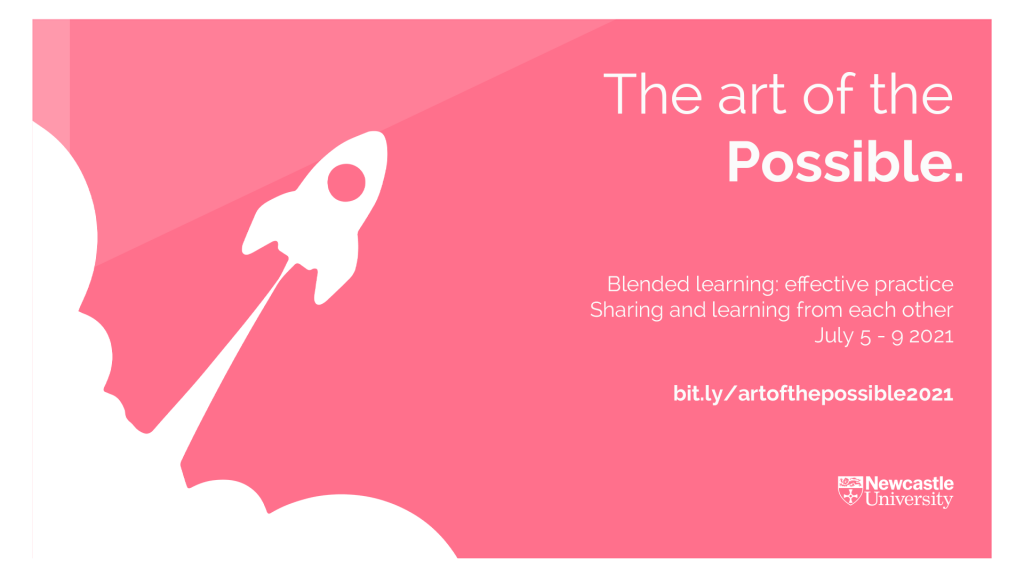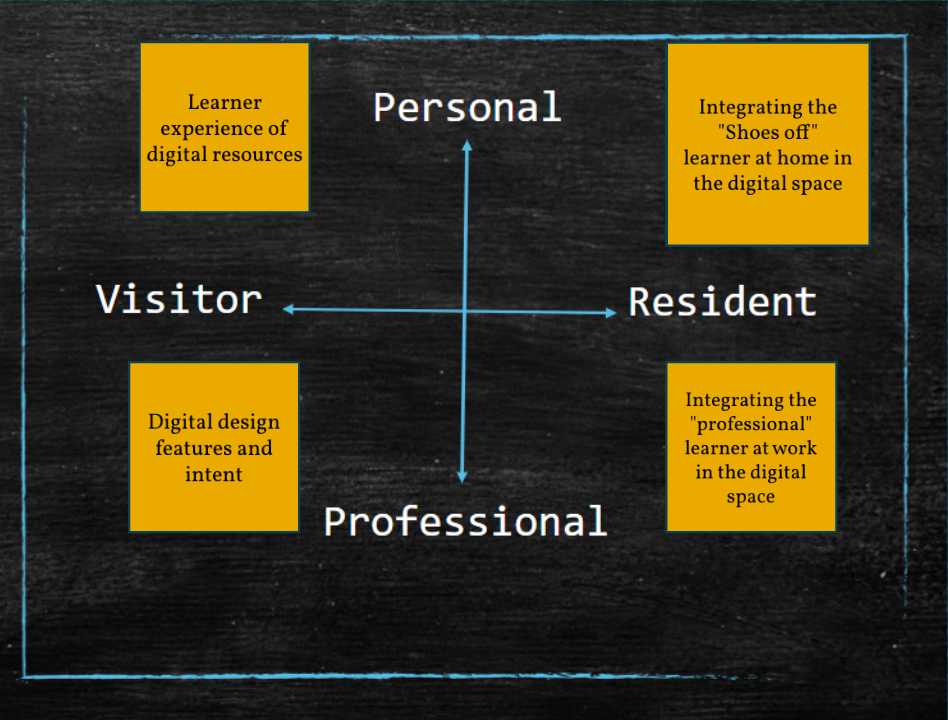
Following the success of The Art of The Possible in July 2019 which focussed on accessibility, you are invited to The Art of The Possible 2021 which focusses on blended learning, effective practice, ways to share, and opportunities to learn from each other.
The Art of the Possible 2021 will:
- Showcase the excellent practice developed across the University in blended and online learning over the past year by spotlighting case studies and interviews with colleagues across the University.
- Inspire ideas for blended learning proposals for consideration by Faculties
- Re-focus minds on the education strategy objective for Newcastle University to become recognised nationally as a leading university for the use of technology enhanced learning to support campus-based education.
The second Art of the Possible week will take place the week commencing 5 July 2021. The week of online events will include presentations, workshops, case studies, and the launch of the Newcastle University Learning and Teaching Podcast.
All delivered in a light, fun and adventurous way but with a clear link to the Education Strategy and the Graduate Framework.
The week will begin with a presentation from Professor Helen O’Sullivan Chair of the Association for Learning Technology, Provost and DVC, Chester University, who will deliver a keynote session on the lessons we’ve learned during the pandemic. And what can we take from the pandemic into the future.
Find out more about each day below :
Monday 5th July
Keynote Session with Professor Helen O’Sullivan Chair Association for Learning Technology, Provost and DVC, Chester University
Preparing students for their future, not our past: How the pandemic pushed us past the tipping point into education 4.0
Time: 11am-12noon
Colleagues and PGR students can register here
Designing online activities for university learning (Part One) with Helen Beetham Session fully booked
Time: 12:30pm – 1:30pm
Tuesday 6 July
Saving time and enriching your courses with Canvas Commons with Nuala Davis & Graeme Redshaw-Boxwell, LTDS
Time: 4pm – 5pm
Colleagues and PGR students can register here
Wednesday 7 July
A Series of lightning talks and Q&A about virtual fieldwork and virtual labs
This 90-minute session, hosted by Dr Cees van der Land, will explore how virtual fieldwork and labs have been developed over the pandemic and what effective practice we can take moving forward.
You’ll hear lightning talks from:
- Dr Louise Callard, School of Geography, Politics and Sociology
- Dr Cristina Navarro, School of Natural and Environmental Sciences
- Dr Sara Marsham and Dr Heather Sugden, School of Natural and Environmental Sciences
- Dr Alison Gregory, Faculty of Medical Sciences
- Dr Graeme Wells, Biosciences Institute
- Dr Jo Matthan, School of Dental Sciences
Time: 10am – 11:30am
Colleagues and PGR students can register here
Launch of the Newcastle University Learning and Teaching Podcast
Thursday 8 July
Saving time and enriching your courses with Canvas Commons (repeat of Tuesday’s workshop) with Nuala Davis & Graeme Redshaw-Boxwell, LTDS
Time 11am – 12noon
Colleagues and PGR students can register here
Friday 9 July
Designing online activities for university learning (Part Two) with Helen Beetham Session Fully Booked
Time 12:30pm – 1:30pm
You can register for any of the sessions above through our Elements page. Please note, if you sign up to Helen Beetham’s session, you will need to sign up to both parts.


